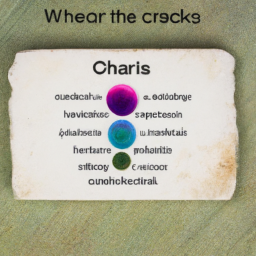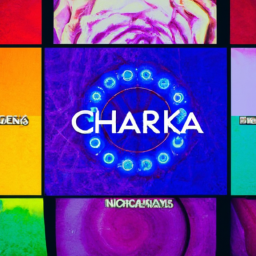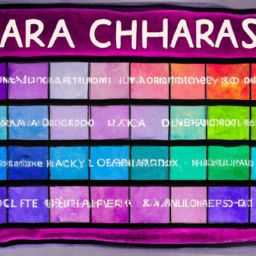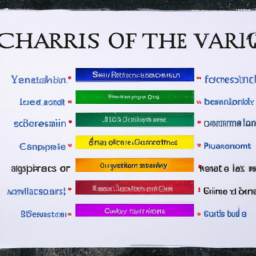The Sarada Chakra Nature is a term that refers to the unique energy and characteristics possessed by individuals in the Hindu mythology. These energies are believed to be derived from the Hindu goddess, Sarada, who is a representation of knowledge and wisdom.
In Sanskrit, the word “Sarada” means autumn, and chakra means wheel. Therefore, the term Sarada Chakra can be translated to mean the “Autumn Wheel.” This term is commonly used in Hinduism, specifically in Vedic, Tantra, and Yogic traditions.
The concept of Sarada Chakra Nature is based on the belief that every individual has a unique energy pattern or aura that influences their personality, behavior, and destiny. This energy is represented by a wheel with eight spokes, and each spoke is said to hold a different aspect of an individual’s character.
The Eight Spokes of Sarada Chakra Nature
1. Kama (Desire) – The first spoke represents desire, which refers to the strong longing or craving for something. It is believed that individuals with a dominant Kama chakra tend to be passionate, driven, and have a strong desire for success and material possessions.
2. Krodha (Anger) – The second spoke represents anger, which refers to the intense emotion of being upset or displeased. Individuals with a dominant Krodha chakra are believed to have a fiery personality, be quick to anger, but also have a strong sense of justice.
3. Lobha (Greed) – The third spoke represents greed, which refers to the strong desire for wealth, possessions, and material things. Individuals with a dominant Lobha chakra are believed to be materialistic, competitive, and motivated by wealth and success.
4. Moha (Attachment) – The fourth spoke represents attachment, which refers to the emotional bond or connection to people, things, or ideas. Individuals with a dominant Moha chakra are believed to be sentimental, compassionate, and caring.
5. Mada (Pride) – The fifth spoke represents pride, which refers to the excessive belief in one’s own superiority and achievements. Individuals with a dominant Mada chakra can be seen as arrogant, confident, and self-assured.
6. Matsarya (Jealousy) – The sixth spoke represents jealousy, which refers to the feeling of resentment or envy towards someone else’s possessions, qualities, or success. Individuals with a dominant Matsarya chakra are believed to be competitive, ambitious, and driven by the need to outdo others.
7. Swadharma (Duty) – The seventh spoke represents duty, which refers to the sense of responsibility and obligation towards one’s family, society, and religion. Individuals with a dominant Swadharma chakra are believed to be disciplined, responsible, and committed.
8. Swamoksha (Salvation) - The eighth spoke represents salvation, which refers to the ultimate goal of liberation from the cycle of birth and death. Individuals with a dominant Swamoksha chakra are believed to be spiritually inclined, seeking enlightenment and understanding of the higher truths.
The Balancing of Sarada Chakra Nature
According to Hindu philosophy, the balance of these eight chakras is essential for an individual to live a harmonious and fulfilling life. It is believed that if one or more of these chakras are imbalanced, it can lead to negative traits, obstacles, and difficulties in one’s life. Therefore, to achieve a balanced Sarada Chakra Nature, individuals must strive to control their desires, emotions, and behavior patterns.
Through the practice of meditation, yoga, and other spiritual practices, individuals can enhance their self-awareness and work towards balancing their chakras. It is also believed that seeking the guidance of a spiritual guru or teacher can help in understanding and managing one’s Sarada Chakra Nature better.
In Conclusion
The concept of Sarada Chakra Nature is an essential aspect of Hinduism, as it emphasizes the influence of energy and its balance on an individual’s life. It encourages individuals to seek a higher state of consciousness and strive for inner peace and harmony.
By understanding the unique energy pattern of our Sarada Chakra Nature, we can work towards achieving a balanced and fulfilling life, leading us closer to the ultimate goal of liberation.





Great question!
FionaLuke: Very intrigued!
Really great question! I’m interested to hear the answer too! 🙂